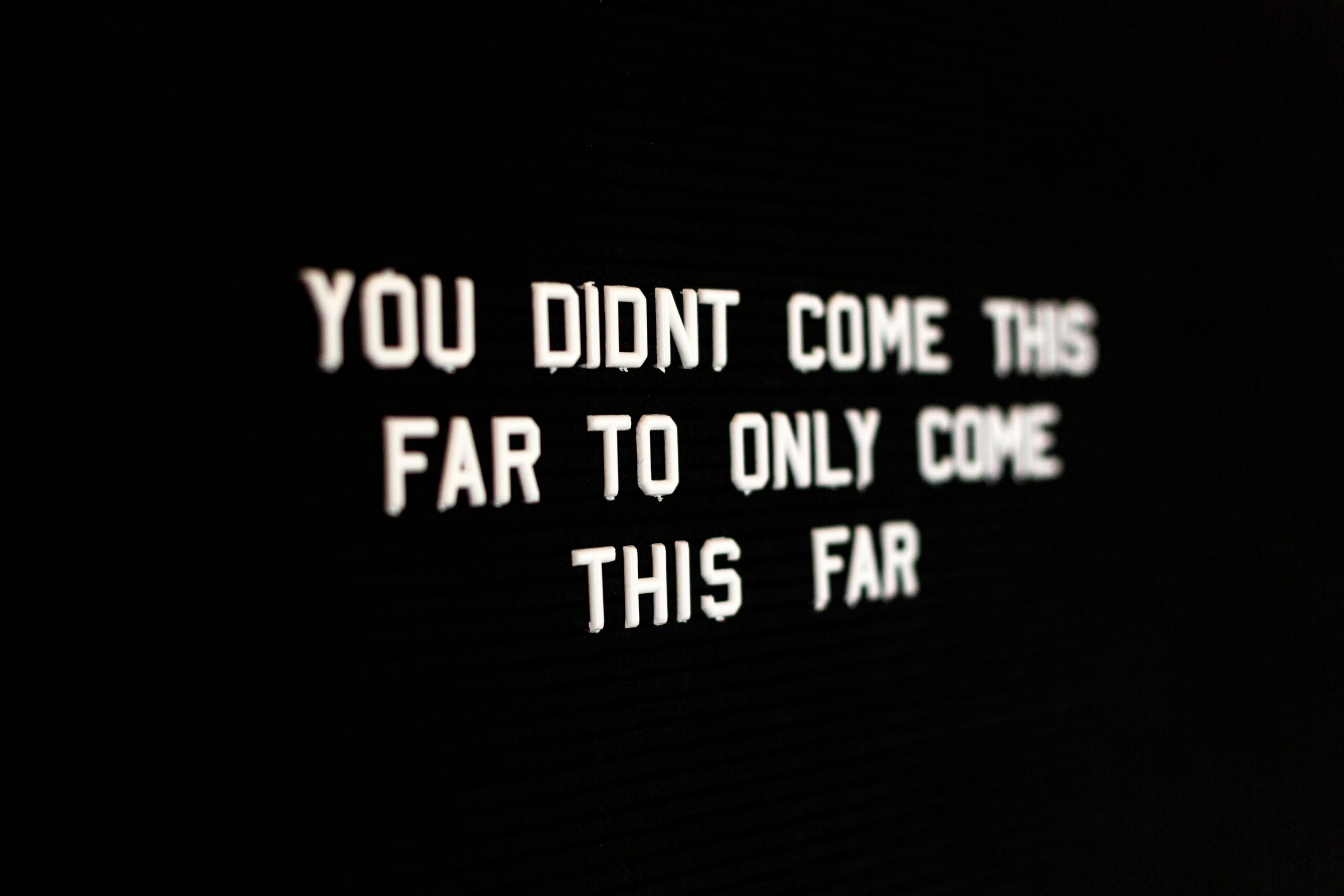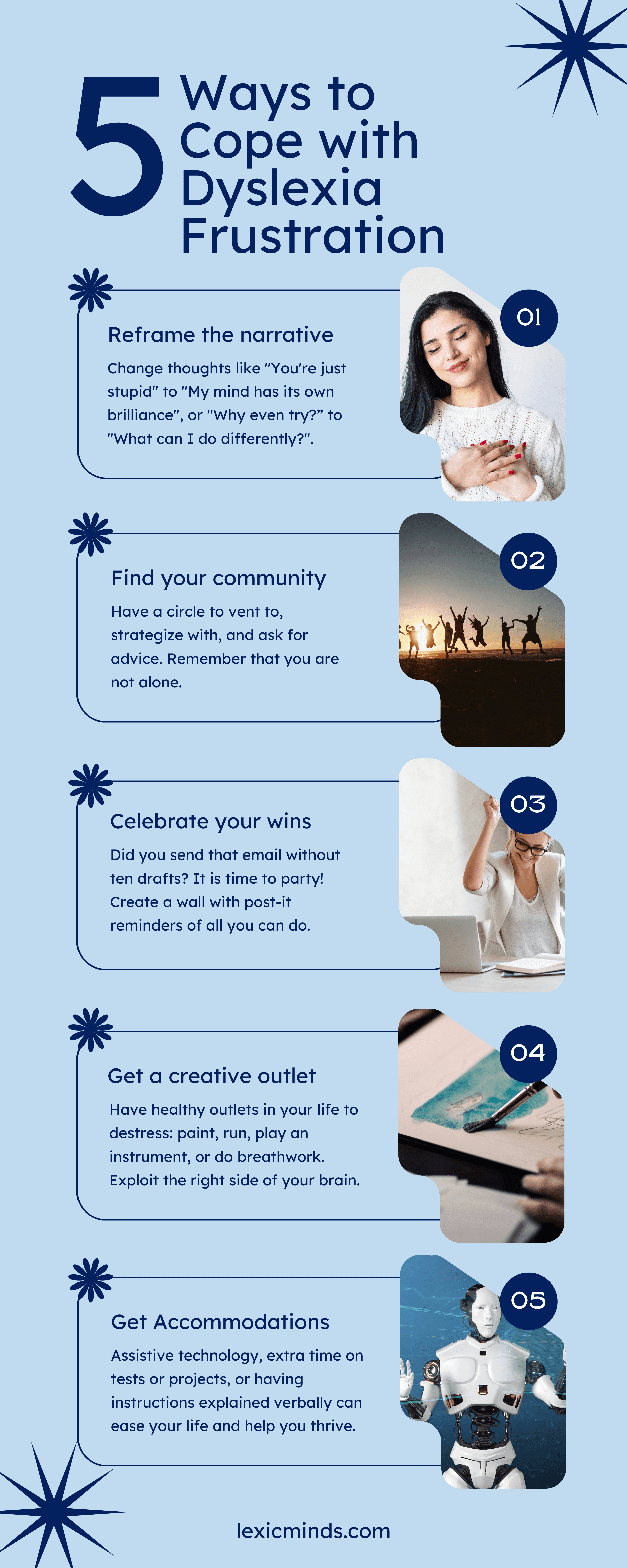Reading and writing can be joyful adventures that push our imagination or fill us with wonderful information.
They are doors to new ideas.
But, if you are one of the millions of people, those doors can appear locked with Dyslexia frustration. The words stubbornly hide their meaning no matter how hard you try.
The heaviness in your chest as you stare at a paragraph that seems to shift and swirl in front of your eyes.
That sinking feeling when you go to read aloud and the words trip over themselves clumsily.Â
You are not alone in those moments of despair and annoyance. We have all been there. But here is the thing: Dyslexia is a brilliant asset unless you let frustration consume you.
It does not have to be that way. With clever strategies and a hard restart on your relationship with reading, the fog will lift.Â
Why is Dyslexia Causing Me Frustration?
Let us start by identifying some of the common sources of frustration. It always helps to highlight the root of the problem.
Struggling to decode words and letters that seem to dance around
You know the feeling: you are staring at a basic word like “reality” and suddenly the letters have formed a conga line. The “r” and “l” switch lead spots while the “a” gets fancy too. Your eyes cross, squint, and strain, but the letters refuse to tangle into something recognizable.
Persistent difficulties with spelling and forming sentences
You stare at a simple sentence you just wrote and realize with horror (or do not realize at all) that you have accidentally typed: “The cat waked acrossed the rown.” You know perfectly well how “walked” and “town” are spelled. But somehow, when it came time for the brain to calibrate fingers to the keyboard, Dyslexia arrived.
Mixing up similar words or phrases
You are midway through a sentence when all of a sudden “definitely” and “defiantly” start playing musical chairs. Or “there,” “their,” and “they’re” decide to go rogue and swap places at random. Before you know it, your meaningful statement has devolved into gibberish.Â
Slow reading pace compared to others Â
Raise your hand if you have been personally victimized by having to read…the…same…paragraph…over…and…over…and…over again. Your classmate or colleague has finalized the entire chapter. Reading at a slow pace can make any material, no matter how interesting, feel tedious.
And that is just the start.
Having dyslexia goes far beyond just decoding issues. There is the embarrassment of being called on and fumbling over words in front of an audience. The critical comments from people who are not informed. Discrimination from employers, teachers, and loved ones who do not bother to understand your unconventional brain.
These reading roadblocks can shake your confidence. But your kaleidoscope of a mind is just as bright, vibrant, and brilliant even when tripped up the symbols on the page or screen.Â

The Mental Health Impact of Dyslexia and How to Cope
The everyday weight of Dyslexia eventually catches up to your mental health. It is essential to consider that it could affect you in the following manners:
đź’” Impacts on self-esteem and confidence
Walking through life as a person with Dyslexia means being flooded with subtle (and not-so-subtle) reminders that you are different.Â
đź’ś Reminder: You struggle with skills others take for granted and have unique strengths such as problem-solving skills and brilliant creativity.
đź’” Feeling anxiety when participating in professional or academic contexts
Reading out loud in class? Cue the stomach knots. Having to compose emails for work? Be prepared for multiple anxiety-inducing drafts and re-reads, as those tricky letter combos mess around.
đź’ś Reminder: Stop the “I am not as intelligent as my peers” thoughts. Everybody struggles with something. Add accommodations to your daily life. For example, Grammarly can fix your mistakes and ease the road ahead.
đź’” Avoidance behaviors to sidestep reading and writing Â
We are only human. It means that when faced with constraints we experience anxiety, embarrassment, and feelings of stupidity, and we avoid the situation.Â
đź’ś Reminder: Monitor yourself and catch yourself if ever doing any of the following avoidance practices. Instead, search for support in dyslexic communities and resource hubs like Lexic Minds.
Evading situations that could potentially reveal weaknesses, like book clubs ❌
Watching movie summaries instead of reading the books ❌
In the most soul-crushing cases, dropping out of school or promising careers altogether to escape the Dyslexia struggles ❌
đź’” Emotional exhaustion
Imagine running a mental marathon daily to approach reading and writing tasks. You are constantly operating at peak concentration, meticulously sounding out words and scanning sentences letter by letter.
đź’ś Reminder: You already are an incredible resilience machine.Â
đź’” Feeling behind in life
Re-learning the alphabet at a frustratingly slow pace as a child or gasping when your term paper comes back with red ink everywhere may make you feel like you cannot catch up to the race.Â
đź’ś Reminder: No. Dyslexia is a brilliant mind with different processes.
The world is not designed for people who think outside the box and color outside the lines. It does not mean you can acquire the accommodations to thrive.

5 Ways to Cope with Dyslexia Frustration
Here are 5 actionable ways to get along with your Dyslexia frustration. Have you tried any of these?
#1 Reframing negative self-talk into positive mantras
First things first. It is time for a little mental martial arts to kick those inner bullies to the curb and change the narrative to tell yourself something positive.
“You’re just stupid” = “My mind has its own brilliance”.
“Why even try? You’ll never get it” = “What can I do differently?”
“Maybe this just isn’t for you…” = “How can I accommodate it for me?”
We have all had those deafening voices on repeat, crushing our confidence and perspective. But what if we modified that negative self-talk into something more constructive? More compassionate? What would the world look like?
#2 Build or find a supportive communityÂ
Frustration fuels feelings of loneliness and isolation. With 1 in 5 people with Dyslexia in the US alone, you are not alone in this journey.Â
- You can start a book club with other Dyslexic thinkers.Â
- Join an online forum to laugh over memes or share advice.Â
- Befriending coworkers who share your appreciation for speech-to-text software.
Having that circle to vent to, strategize with, and celebrate wins alongside is a warm hug. An understanding squad reminds you that you do not have to push through this alone.Â
#3 Celebrate Dyslexia wins, no matter how small
Does reading a tricky paragraph without getting lost deserve a victory lap around your living room? YES.Â
How about replying to that email without your usual 12 drafts and revisions? YES.
Dyslexia forces you to work twice as hard for gains others take for granted. Every micro-milestone is epic.
Maybe you start leaving yourself encouraging sticky notes: “126 words read today, hot damn!” Or award yourself a treat after getting through a whole chapter, mistake-free.Â
#4 Find productive outlets like exercise or artÂ
Let us be real. Sometimes Dyslexia can wear you down into fatigue. That is why it is crucial to have healthy outlets in your life to destress or exploit your creativity. Some ideas are:
- Do aerobic exercise: Take your mind off the letters by giving your body a challenge. Get those endorphins with a run or an energizing dance party.Â
- Flexing creative muscles: Play an instrument, paint, sketch, or work on an artistic project. Shift from the left-brain reading into a free-flowing right-brain flow state.
You can also try the following deep breathing exercise:
- Inhale slowly through your nose while visualizing the salty ocean breezeÂ
- Hold that breath for 5 seconds
- Exhale out your mouth while picturing waves gently lapping at the shore
You have centered yourself again.

#5 Ask for Accommodations
Too often dyslexic people get used to battling through everything on their own. But you know what? Accommodations were created for a reason.
There is no shame in soliciting help for:
- Assistive technology (text-to-speech, speech-to-text, word prediction). Read a curated list here.
- Extra time on tests or projects
- Having instructions explained verballyÂ
- Being provided important print materials in audio formats
- Using colored lenses and screen filters to reduce visual distortion
You would not show up to build a house without a hammer and nails, right? Yet one of the hardest parts can simply be self-advocacy and vulnerability. Recognizing your unique needs and ensuring you have what it takes to succeed on a level playing field? That makes you the strongest, most switched-on person in the room.
Read 9 tips to deal with Dyslexia and frustration shared by dyslexic minds here.
Points of Action
- Start a daily practice of replacing negative self-talk with empowering mantras. Carry a journal and document your journey.
- Make a “Win Wall” to visually celebrate daily and weekly victoriesÂ
- Research and experiment with different assistive technologies
- Schedule activities like exercise, art, and music to constructively work through frustration
Key Takeaways
- Your Dyslexia frustration does not define you. It is one aspect of your kaleidoscope mind.Â
- Stay aware of how your dyslexic journey can affect your mental health. It will help you ask for help or slow down when needed.
- Frustration is a normal experience. Channel it into motivation and art.Â
- Use the right tools and accommodations. It is a power move, not admitting weakness.
Sources:
Signs of dyslexia (adult) – British Dyslexia Association
The Effect of Colored Overlays on Reading Fluency in Individuals with Dyslexia
Dyslexia: Supporting with Home-Based Exercises
Debunking the Myths about Dyslexia – University of Michigan
Disclaimer: This is not medical advice. Please consult with a licensed professional when in doubt. Lexicminds is not liable for actions taken from this page.








